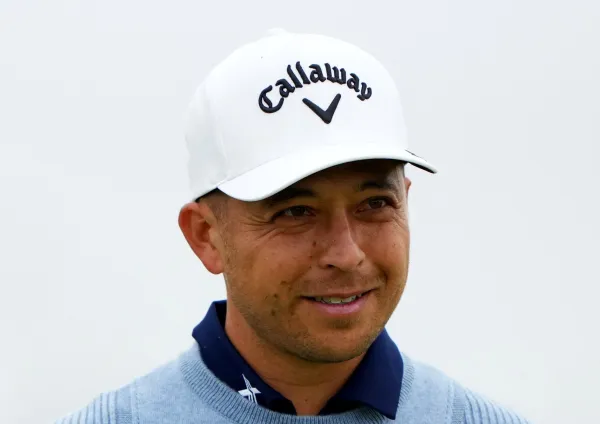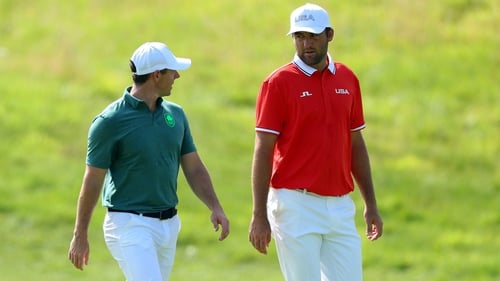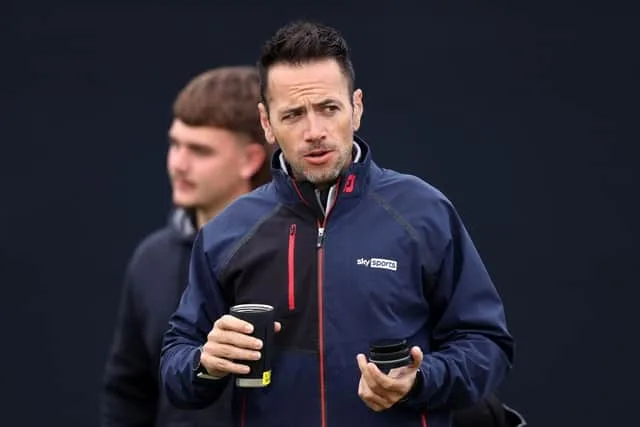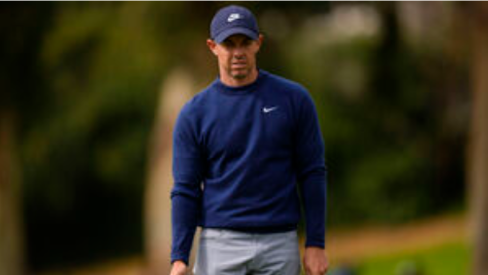Schauffele points out issues with golf prize money
Title: Even with Massive FedEx Cup Purses, Xander Schauffele Highlights the Pay Gap Between Golfers and NFL Quarterbacks This week, the BMW Championship, the second event in the FedEx Cup Playoffs, features a total purse of $20 million, which will be shared among the 50 PGA Tour players who advanced from the previous week’s FedEx…
Title: Even with Massive FedEx Cup Purses, Xander Schauffele Highlights the Pay Gap Between Golfers and NFL Quarterbacks
This week, the BMW Championship, the second event in the FedEx Cup Playoffs, features a total purse of $20 million, which will be shared among the 50 PGA Tour players who advanced from the previous week’s FedEx St. Jude Championship. However, this sum pales in comparison to what’s on offer in the upcoming Tour Championship, where a significant portion of the $100 million overall FedEx Cup purse will be distributed among the 30 finalists. The winner at East Lake will take home a staggering $25 million, while the top five finishers will collectively earn $56 million.
For Xander Schauffele, currently second in the FedEx Cup standings, this could mean securing the $12.5 million prize for second place, adding to the over $17 million he’s already accumulated this year, plus whatever he earns at the BMW Championship.
Reflecting on the evolving conversation around money in golf, especially in the wake of LIV Golf’s lucrative contracts, Schauffele noted the contrasting reactions in the media. “In the past two or three years, the media has become increasingly focused on money in golf,” Schauffele commented. “There’s been a lot of talk about inflated purses, and it’s often framed negatively. But when athletes in other sports sign massive contracts, the reaction is mostly positive, with people acknowledging their hard work and saying they deserve it. It’s interesting to see the difference in perception.”
Schauffele mused on the cultural differences between sports, suggesting that golf, as a “gentlemen’s game,” traditionally shies away from discussing money, even though it’s a frequent topic in the media. However, for top golfers like Schauffele, money is not the primary concern. “The players who earn the most aren’t really focused on money. It’s not the most important thing.”
While Schauffele acknowledged that winning the $25 million first prize would be “cool” and “nice,” he indicated that such an amount wouldn’t be life-changing for him, especially considering the achievements he’s already had this year, like becoming the first golfer since Jordan Spieth in 2015 to win two majors in a single season.
When asked to compare the earnings of top golfers to NFL quarterbacks, Schauffele provided an interesting perspective. “It’s different,” he explained. “The earnings for top players are skewed. If you compare the top 10 quarterbacks to the top 10 golfers, it’s not really fair. For example, Scottie Scheffler has been outstanding, winning seven times, including an Olympic gold medal, and he’s earned significantly more than everyone else.”
Schauffele highlighted the disparity between the earnings of the top and lower-ranked players in golf compared to football. “The No. 1 quarterback might earn $60 million, while the No. 10 quarterback earns $52 million, and the No. 15 might get $39 or $40 million. But in golf, the No. 1 player might earn around $29 million, and the No. 10 player doesn’t come close, maybe earning around $5.8 million. That just shows how well Scottie has played in these big tournaments, and I think he deserves every bit of what he’s getting.”
Here’s a comparison of the earnings Schauffele was referencing:
– No. 1 NFL QB in 2024 (Joe Burrow): $55 million (average across his contract)
– No. 1 Golfer in 2024 (Scottie Scheffler): $29.1 million
– No. 10 NFL QB in 2024 (Deshaun Watson): $46 million
– No. 10 Golfer in 2024 (Shane Lowry): $5.8 million
Schauffele’s point underscores the meritocratic nature of golf. While there is a substantial pool of money for players to compete for each year, the earnings can vary significantly depending on performance. In some years, the gap between the top and the tenth-ranked players might be narrower, but in a year like this one, where Scheffler has been dominant, the disparity is more pronounced.
Golf, unlike many other sports, requires players to continuously prove themselves, with no guaranteed earnings on the course—at least in traditional non-LIV events. The negativity surrounding money in golf, Schauffele suggested, is often more about the disruption caused by guaranteed contracts than the concept of money itself. Fans might be divided on the issue, but it’s hard to deny the impact on the sport’s traditional meritocratic structure.
Nonetheless, Schauffele doesn’t have to worry about guaranteed money. With nearly $57 million in career earnings, he’s just eight rounds away from potentially adding another eight-figure sum to his earnings and closing the gap between himself and Scheffler in both wins and money earned in 2024.






